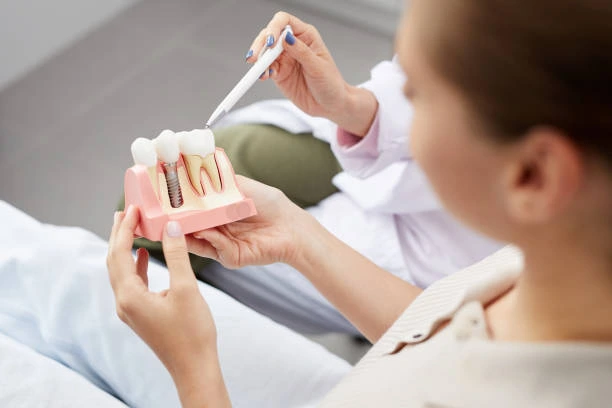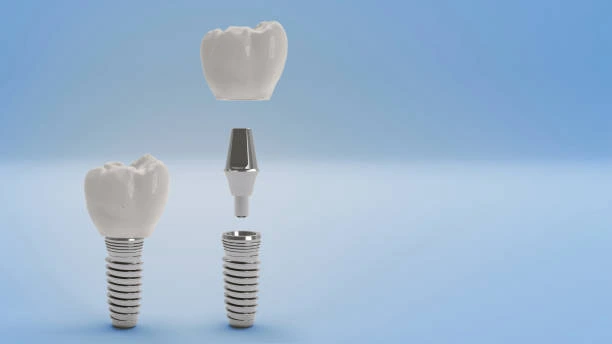When you have an autoimmune condition, you may wonder whether you can safely undergo dental implants and how the healing process and long-term outcome will be. Autoimmune diseases may influence the way your body reacts to surgery, wound healing, and foreign material acceptance and it is therefore important to take into consideration the risks and benefits. Although dental implants are a well-established treatment option of missing teeth, some health conditions can affect the treatment process. This article will examine what patients with autoimmune disorders need to know before having implant surgery and how to make informed choices with your dental and medical team.
Can You Get Dental Implants with an Autoimmune Disease?

Dental implants are a proven way of replacing missing teeth, and autoimmune disease can complicate the healing and integration process. When your immune system is already overactive, the body can react differently to foreign substances such as titanium posts that are implanted in dental implants. With proper preparation and medical coordination, many patients with autoimmune conditions go through implant surgery successfully.
How Conditions Like Lupus or Rheumatoid Arthritis Impact Healing
Lupus and rheumatoid arthritis (RA) are autoimmune diseases that are characterized by chronic inflammation. This may impede the natural healing process of your body, which may delay the process of osseointegration, or the fusion of your bone to the implant. Also, recurrent flares or underlying inflammation could lead to the weakening of the bone density in the long term, which would impact the stability of the implant.
The Role of Immunosuppressants in Implant Success Rates
Immunosuppressant drugs are commonly used in patients with autoimmune disorders to reduce inflammation and treat the symptoms. Nonetheless, these drugs may also inhibit the natural healing process of the body, particularly after surgery such as dental implantation. Medications like corticosteroids or biologics can also heighten the chances of post-surgical infections or the prolonged recovery of tissues. It is due to this that planning and coordination with your healthcare team before and after implant surgery is very important.
Which Autoimmune Patients May Not Be Ideal Candidates
Not all people with an autoimmune condition are at equal risk in the event of dental implant surgery. Uncontrolled systemic inflammation, active infections, or recent organ transplants may not make the best candidates during evaluation. In such cases, medical providers and dental professionals collaborate to find safer options or postpone the treatment until the patient is stable. The aim is to achieve safety and long term success of implants.
Dental Implant Success Rates in Autoimmune Patients

The success rates of dental implants in patients with autoimmune diseases also depend on the health status of the patient, control of the disease and medications. Although studies indicate that a large number of individuals with well-controlled autoimmune conditions can achieve successful implant result, the risks of slow healing or implant failure are slightly higher than in the general population. Adequate planning, monitoring and coordination between dental and medical providers are significant to reduce the complications and ensure a long-term success.
Research Findings on Implant Longevity in Autoimmune Cases
However, clinical studies show that the dental implants may be successful even in patients with autoimmune disorders; however, the results are not always the same. Research reviews indicate success rates of between 85 and 95 percent, depending on the particular autoimmune disorder, drugs, and general health. Compared to the general population, success rates are more likely to be in the range of 95-98 percent. These figures indicate the significance of individual treatment planning and close observation in cases of autoimmune disorders.
Comparing Outcomes with Healthy Individuals
Although the patients with autoimmune disorders are somewhat at risk of developing complications such as peri-implantitis (inflammation around the implant), these difficulties can be addressed with proper preventive measures. With regular dental care, proper medication planning and frequent follow-ups, long-term success is not out of the question. The best way to reduce risks and ensure optimal healing is to have close collaboration between your dentist, physician and care team.
Case Studies: What Worked and What Didn’t
In the actual practice, the positive outcomes of the cases usually feature patients with well-managed autoimmune conditions who cooperate with their dentist and specialist. On the other hand, implant failure has been more frequently reported in patients who had active disease flares, in those with poor bone quality, or those who failed to follow up regularly. The case studies highlight the significance of individualised treatment planning.
How to Prepare for Implant Surgery with Autoimmune Conditions

It is important to prepare properly when you are going through dental implant surgery, particularly when you have an autoimmune disease. Since your immune system can respond to surgery and recovery in a different way, additional measures can be used to minimize complications and recovery.
Your care team will probably liaise with your medical provider to determine the status of your medications, the functionality of your immune system, and the most appropriate time to undergo surgery. Lab work, imaging, and health screenings may also be required to be a good candidate pre-operatively. With careful planning, a large number of autoimmune patients are able to safely and successfully undergo dental implants.
Medical Clearance and Lab Tests You’ll Need First
Your dentist is likely to seek medical clearance with your rheumatologist or primary care physician before going ahead with implant surgery. Such teamwork will assist in making your condition stable and under control. Laboratory tests (including immune status, bone density, and inflammation markers) can be requested to determine the risks. Such revelations enable your surgical team to predict troubles and customize your post-surgical experience to be easier and safer.
Why You Must Coordinate Between Your Dentist and Specialist
It is important that there is open communication between your dental implant provider and your autoimmune specialist. This interdisciplinary model will help oversee your medications pre and post-surgery so that you have fewer complications. Temporal modifications, e.g., suspension of some immunosuppressants, can considerably enhance the process of healing. When the providers work together, there is a better chance you will have a safer procedure and recovery.
Post-Surgical Risks and How to Minimize Them
Your autoimmune condition may make your healing a bit slower after your procedure. One should also take all the post-operative instructions seriously, including taking prescribed antibiotics or anti-inflammatory drugs as prescribed. Be on the lookout of symptoms of swelling, long-lasting pain, or alterations in the gums, and report them immediately. Early symptoms should be attended to early to avoid complications and save your implant.
Alternative Tooth Replacement Options for Autoimmune Patients
Patients with autoimmune diseases that put them at a greater risk of dental implants still have alternatives that will work as reliable means of replacing missing teeth. Partial or full dentures that can be removed are a non-surgical option and can be tailored to comfort or performance. Another alternative, which also involves the use of fixed restorations which depend on healthy teeth near them, is dental bridges which involve the reduction of enamel. When there is a bone loss issue, the bone grafts might not be possible and therefore there is a tendency to use the non-invasive method.
The dentist will take into account your general health status, the medication, and the lifestyle to advise you on the most suitable tooth replacement solution.
When Implants Are Not Recommended
In case your immune system or general health is not good enough to undergo implant surgery, your dentist will suggest other options. Patients with active chemotherapy, uncontrolled diabetes, or severe autoimmune flare-ups are usually discouraged to have implants placed or even postpone the procedure. In such instances, the use of non-surgical options such as dentures or bridges can be used until your condition stabilizes. The aim is always to preserve your health and rebuild your smile with as much safety as possible.
Dentures vs. Bridges: Pros and Cons in Medically Complex Cases
The common alternatives to implants are removable dentures and fixed bridges. Dentures can be more convenient to the people whose health conditions vary, but they are not as stable and comfortable as implants. Fixed bridges are more natural in appearance and feel, but they need to reshape neighboring healthy teeth to support them. The most suitable option is determined by the general medical condition, oral health, and preferences. A good consultation with your dentist will assist in finding the most appropriate one.
Temporary Solutions Until Health Stabilizes
In some cases, temporary partial dentures, also known as flippers, may be prescribed on a temporary basis. These appliances bring back normal functionality and appearance as well as allow your body to stabilize. They can be particularly useful at times when autoimmune symptoms are active or when the ability to heal is low. When your condition is under better control, your dentist will be able to reconsider the possibility of dental implants being a safe and viable option.
Frequently Asked Questions (FAQs)
1. Can lupus or RA patients safely get dental implants?
Yes, many patients with autoimmune conditions like lupus or rheumatoid arthritis can safely undergo dental implant surgery, especially when their disease is well-controlled. Success largely depends on factors such as bone density, overall immune health, and the medications being used. Collaboration between your dentist and medical providers plays a key role in minimizing risks and ensuring a smooth recovery. Although healing may take longer, many patients still experience excellent long-term outcomes. Individualized treatment planning and ongoing monitoring are essential for success. With the right approach, dental implants can be a safe and satisfying solution.
2. What medications can affect implant healing in autoimmune cases?
Common medications that may impact healing after dental implant surgery include corticosteroids, methotrexate, and biologics. These drugs help control autoimmune symptoms but can also suppress the immune system, potentially delaying tissue repair and increasing infection risk. However, with proper planning, dosage adjustments or timing changes made in coordination with your medical team can help reduce these risks. It’s important to give your dentist a full list of all medications, including supplements and over-the-counter drugs. This ensures your treatment plan is safe, personalized, and optimized for healing.
3. Will my implants last as long as someone without an autoimmune disorder?
Dental implants can last just as long in patients with autoimmune diseases, provided proper care is taken. While these conditions add some complexity, factors like good oral hygiene, regular dental visits, and stable medical management greatly improve outcomes. Consistent follow-up and communication between your dental and medical providers are also key. Long-term research supports the success of implants in autoimmune patients when these precautions are followed. With the right strategy, implants can offer lasting function and aesthetics.
4. Do I need special follow-up care after implant surgery?
Yes, autoimmune patients often require more frequent monitoring after implant surgery. This typically involves additional dental checkups, specialized cleanings, and ongoing communication with your medical providers. Prompt attention to early signs of inflammation or infection is essential to prevent complications. With this proactive care, patients can support healing and protect their long-term results. The extra attention is a worthwhile step toward lasting implant success.
Ready to Take the Next Step?
If you’re living with an autoimmune condition and considering dental implants, your situation deserves a personalized approach. Every decision should factor in your unique health profile and long-term goals. With proper planning, dental implants can still offer a stable, natural-looking solution. Contact our office today to schedule a consultation—we’re here to help you smile with confidence, safely and successfully.


